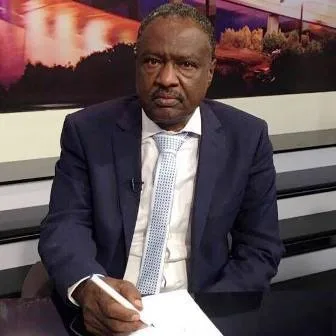The UAE: A Paper Tiger

By Rashid Abdul Rahim
All the UAE relies on and wagers in its wars against nations and peoples is its wealth.
It is well aware that it relies on finite, depleting resources—only a few decades remain—so it rushes to expand, especially given its small landmass and limited population.
In pursuit of the wealth of others, it violates the rights of nations and peoples.
Its reservation on Article 9 of the Genocide Convention, which criminalises perpetrators of genocide, clearly reveals that the UAE is intent on committing such crimes and fears prosecution, which could hinder its external ambitions.
This reservation also indicates that the UAE does not prioritise the rights of its own people, as it means it cannot accuse others of committing genocide against its citizens, nor could they seek compensation for such crimes.
The ugliness and atrocities of the UAE’s actions compel it to rely on noise and media spin to avoid direct military confrontation with those it aggresses upon.
Its attacks on Port Sudan deliberately target sites that generate media noise—like flammable material depots, not for military gain but to produce smoke for media optics.
The new development in the Port Sudan attacks lies in the clear evidence that the UAE carried them out directly, rather than through its terrorist ally, the Dagalo militia (RSF), which lacks the intellect and capability to plan and execute such operations.
The UAE’s provision of lethal equipment and advanced weapons to the militia—without direct human involvement—shows its intent to terrorise its targets. It continues to supply them as their actions further violate human and moral standards, using fear to force submission and expand its control.
The UAE’s aim in empowering the rebellion is clearly to create a government from within it, one that would legitimise looting Sudan’s land and wealth.
If the rebellion fails to seize power, the UAE wants it at least to weaken the legitimate government through attacks and disruption, enabling it to corrupt and exploit the country, paving the way for projects designed to plunder its resources.
We are dealing with a state that fears media exposure because it reveals its true face to the world and to its own citizens.
It does not fear war, assumes it is protected by Gulf defence agreements, and counts on the GCC to defend it militarily, as Bahrain did.
It also maintains relationships with major world powers, enticing them with promises of large investments, which it uses to buy influence and avoid accountability, as is the case with the United States and other powerful countries that are swayed by the UAE’s financial clout, drawn from its people’s squandered wealth on adventures beyond its means.
The UAE fears that media exposure could push its own people to demand the freedom to choose a political system that aligns with international values—a system that could lead to free elections, which would never result in the rule of a single man, family, or tribe.
Shortlink: https://sudanhorizon.com/?p=5504

